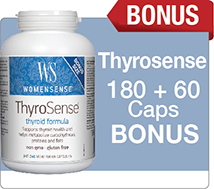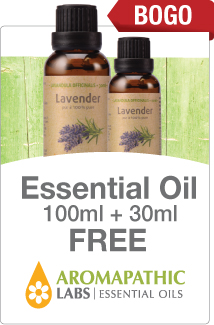Format
 Cream
Cream
177ml (6oz)
Dosage
After showering, add styling and smoothness to your hair with one of our Organic Hair Crèmes. Start with a small amount of Hair Crème in your hand and comb gently through hair & with a focus on the ends. Apply as much as you need to make your hair moisturized-smooth, with a lightly-styled look.
Important Information
Dr. Bronner's does not test on animals and is 100% vegan. Certified organic essential oils & oils
- For strong, shiny hair
- Relaxing and calming scent of lavender
- Provides moisture
- Lightweight
- Certified fair trade ingredients
Related Videos
Articles by a naturopathic doctor.
Dr. Bronner’s, formulators of the popular Magic Soap Bars and Magic Soap All In One’s. Bronner’s soaps are fully natural and made with the best quality ingredients. Bronner’s soap is multi-purpose and can be used as body care or home cleaning. Dr. Bronner’s is a sustainable company that gives back, so you know when you shop with Bronner’s you’re not only keeping yourself and home healthy, you’re keeping the planet healthy too.
Dr. Bronner's History
Dr. Bronner's Magic Soaps are synonymous with Old-World quality and time-honored simplicity, which can be traced back to the family's German-Jewish soap making tradition. Born in 1908 to a Jewish family that had been making soap since 1858, Emanuel Bronner was the third generation certified as a master-soap maker under the guild system of the time. In 1929, he brought his formulas for high-quality liquid and bar soaps to America, starting Dr. Bronner's Magic Soaps in its current form in 1948.
Renowned for their quality, versatility and eco-friendliness, Dr. Bronner's Magic Soaps enjoyed a small but loyal following in the early years. In the late 1960s, however, soap sales started to explode, due to the unsurpassed ecological quality combined with Dr. Bronner's urgent message to realize our transcendent unity across religious and ethnic divides. Word-of-mouth soon made Dr. Bronner's the iconic soap of that era, and in the decades that followed the soaps spread into every health food store in the U.S. and then into the mainstream as well winning over fans from all walks of life on the way to becoming the number-one-selling natural brand of soap in North America.
The 4th and 5th generations of the Bronner family who run the company today continue to make our unsurpassed soaps with care and integrity. 2008 marks both the 60th anniversary of Dr. Bronner's Magic Soaps in America and the 150th anniversary of our family's first soap making activity in southern Germany. We strive to honor our heritage with progressive business practices, while devoting profits to worthwhile causes and charities worldwide.
Essential Oils
Essential oils are aromatic compounds extracted from a number of different plants. They are also known as volatile oils because they evaporate so quickly, which is also how they create such a strong aroma in the air. Because of this ability to quickly create strong scents, these oils are often used in perfumes, cosmetics, soaps and other scented products.
How are they made?
Essential oils are extracted from the plant by steam distillation, cold pressing, or solvent extraction. Good quality products create a pure product that will evaporate cleanly if dripped on a piece of paper. Each type of extraction is used for different plant materials. Solvent extraction is used for substances like flowers that contain very little volatile oil, and those that can be damaged by the temperatures used in steam distillation. Solvents used are hexane or supercritical carbon dioxide. Because carbon dioxide evaporates quickly when the temperature is raised to normal, it is the preferred solvent extraction method to maintain purity. Solvent extraction performed at lower temperatures is preferred to maintain the integrity of the active compounds.
Medicinal Properties
The benefits of essential oils are as diverse as the oils themselves. Some are diluted and used as skin treatments for acne or rashes, while others are used for internal use to fight infection or even help to treat specific diseases. Often current research will focus on specific compounds found in essential oils, to determine which one is responsible for their medicinal benefits. More traditional herbalists believe that it is the synergy between all of the active constituents in the oil that provide the full benefit. In some cases, the benefits of essential oils can simply be attributed to the effect of their scent on the brain. To stimulate the limbic system in the brain, essential oils are often used for aromatherapy in combination with massage and other balancing techniques. For more information, please see our Aromatherapy article.
Dilution
Because of their extremely concentrated state, it is important to dilute essential oils in other high quality carrier oils like olive, almond, grapeseed, or sesame. Keeping in the spirit of oil not mixing with water, an esstential oil can only be diluted by mixing it with another oil. When essential oils are used without being diluted, they can cause severe skin irritation, gastrointestinal upset and even liver damage in the long term. Certain essential oils are not for internal use, and can be toxic even in small amounts.
Hair Health
Providing your body with the right nutrients and making the right lifestyle changes can slow and even halt hair loss...
The condition of our hair is often a great sign of the underlying health of our entire body, and you really are what you eat. Often our hair and nails are the first parts of us to show nutrient deficiencies and signs of illness. Although a number of products can be applied to the hair to improve its appearance, true hair health comes from the inside, out. Soft, shiny, and smooth hair is a sign of good health, and a loss of these characteristics can indicate underlying imbalances in the body.
Hair Growth
In the same way that all of the cells in our bodies are replaced over time, our hair goes through similar life cycles. For more information on these cycles, please see our Hair Loss article. Although hair is not alive itself, it is a substance produced by living hair follicle cells in our skin. Hair grows at a rate of about ½ to ¾ of an inch each month. In order for our body to produce this growth, it requires the nutritional building blocks to do so. The major building blocks of hair are: protein, fat, water, and trace minerals. The final component of hair is the pigment molecules, which give each person’s hair its distinctive colour.
Hair protein Content
The precise amino acid content of hair and the genetic code used to manufacture it, both affect the shape, thickness, and texture of the completed hair strand. A protein called keratin makes up the vast majority of the structure of hair, between 65-95% by weight. When we don’t eat enough protein, it prevents the body from growing new hair as required. Even deficiencies in certain amino acids can cause problems, depending on your body’s particular requirements determined by your genes.
Hair Water Content
Approximately 6% - 14% of the weight of hair is made up of water which fluctuates depending on the surrounding humidity and whether or not the hair has been air dried or heat dried. Friction and static of hair is affected by its moisture content which is why the manageability of our hair changes depending on environmental humidity. When hair is blow dried with heat and moisture is removed, the hair will gradually collect moisture from the air throughout the day. That hair style you worked so hard to achieve will fall a bit and begin to frizz as your hair regains its moisture.
Hair Fat Content
Fat is the next major component of hair by weight, and can be found both inside the shaft of the hair, and deposited on its surface by the glands of the surrounding skin. Internal fat content accounts for 1-9% of the structure of hair, by weight. The most common fats found in hair are palmitoleic, palmitic, and oleic acids. In fact, 40-50% of the lipids found in the hair itself are unsaturated fatty acids (palmitoleic and oleic). In addition to this internal fat, there is also the protective layer of fat on the surface of the hair that affects the way the hair lays on the head. This fat layer is called sebum and is produced by glands in the skin surrounding the hair follicles. Over-washing can remove a large proportion of this protective layer and cause hair that is more prone to flyaways and static frizz. Because oil and water don’t mix, the protective layer of sebum on the surface of the hair can protect it against alteration by the humidity in the air. Thus, having some buildup of oil in your hair can help to prevent flyaways on humid days.
Hormonal Effects
Hormonal changes greatly affect the composition and texture of hair during our lifetime. This becomes most apparent at times of transition like puberty and menopause. The hair of premenopausal women was found to contain more sebum than that of postmenopausal women. As we age, our sebum production reduces and the hair’s permeability to sebum is also affected. This affects hair softness, smoothness and shine. Thus, the hormonal changes of menopause can directly affect the texture and quality of the hair. For more information on ways to combat these effects, please see our Menopause article. Interestingly, poor hormonal balance in our younger years can have similar effects on hair quality. For more information on hormonal balancing, please see our Estrogen Balance article.
Mineral Content
Hair also contains trace minerals, although usually this makes up less than 1% of its composition. Some of these minerals are incorporated during the growth process while some of them are deposited on the hair later by exposure from the environment. The hair of children in cities was found to contain much higher mineral content than those living in the country, farther from pollution.
Hair Mineral Analysis
It has been found by researchers that concentrations of metals such as cadmium, arsenic, mercury and lead in the hair tend to correlate with their concentrations of the same metals in the internal organs. Because of this fact, healthcare practitioners have become interested in performing hair mineral analysis to assess the body’s content of certain heavy metals. Testing for other minerals has proven to be less reliable than heavy metal testing in this manner.
Hair Concerns
There are a number of conditions that can affect hair growth and quality. For more information on these cases, please see our Hair Disorders article. When hair is dry and fragile, it is important to nourish it with oil to promote increased strength. This can be particularly beneficial in those with insufficient sebum production from their skin (those with dry skin). Trimming hair regularly to remove split ends early in their development can help to prevent them from traveling up the hair and further reducing its strength.
- Reviews
- POST A NEW REVIEW





















